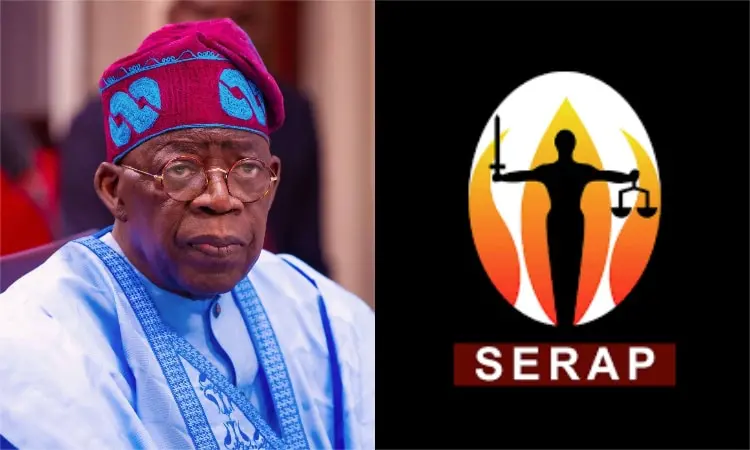By: Goodluck E. Adubazi, Abuja.
The Socio-Economic Rights and Accountability Project (SERAP) has called on President Bola Tinubu to reject the recently approved $1.08 billion World Bank loan.
Instead, SERAP urges him to direct the Attorney General of the Federation and Minister of Justice, Mr. Lateef Fagbemi, SAN, along with relevant anti-corruption agencies, to swiftly investigate allegations that over N233 billion of public funds have gone missing, been diverted, or remain unaccounted for by the Nigerian Bulk Electricity Trading Plc., Abuja, and other ministries, departments, and agencies (MDAs).
SERAP said, “Anyone suspected to be responsible should face prosecution as appropriate, if there is sufficient admissible evidence, and any missing public funds should be fully recovered and remitted to the treasury.”
According to SERAP, “the recovered N233 billion should be used to fund the deficit in the 2025 budget and to ease Nigeria’s crippling debt crisis.”
The World Bank approved a $1.08 billion loan for Nigeria last week to ‘enhance education quality, build household and community resilience, and improve nutrition for underserved groups.’
In the letter dated 5 April 2025 and signed by SERAP deputy director Kolawole Oluwadare, the organisation said: “The World Bank loan is neither necessary nor in the public interest, especially given the country’s crippling debt burden, and staggering amount of missing public funds from MDAs that your government has failed to probe or recover.”
According to SERAP, “the Federal Government should not collect any loan from the World Bank or any other institutions and agencies until the missing N233 billion is fully recovered, consistent with the Nigerian Constitution 1999 [as amended] and the country’s international obligations.”
SERAP expressed concern that both the Federal Government, along with Nigeria’s 36 states and the Federal Capital Territory, are grappling with a growing debt crisis, facing persistent debt cycles, or are either in debt distress or at a high risk of falling into it.













